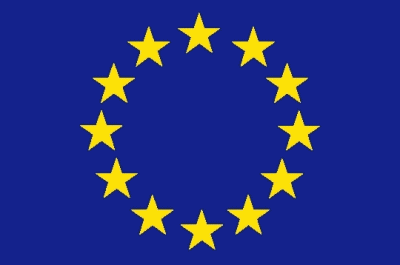What is the media role in shaping the image of migrants in Poland? Are migrants adequately engaged by journalists to partake in newsmaking and comment on their situation? Those as well as wider questions on the role of the media in discourse on diversity and integration of immigrants in Poland was discussed during the seminar organized by the Institute of Public Affairs and School o English, Adam Mickiewicz University in Warsaw on May 18, 2012.
During the first part of the seminar the results of research carried out within the MEDIVA project were presented (Media for Diversity and Migrant Integration - Consolidating Knowledge & Practices Assessing Media across the EU). The aim of the project is to improve the capacity of the media to reflect the diversity of European societies and the mechanisms and processes of immigrant integration. Presentation of the project objectives and results were given by representatives of A. Mickiewicz University: dr. hab. Michał Krzyżanowski, dr. Artur Lipinski, prof. Małgorzata Fabiszak and Samuel Bennett, MA. Panelists focused their presentations mainly on the results of content analysis of Polish and foreign media and on indicators assessing the ability of Polish and other media to reflect diversity and promote integration. They also presented the scope of MEDIVA thematic reports (see below).
The second part of the seminar was devoted to the panel discussion, moderated by dr. hab. Michał Krzyżanowski from IFA, A. Mickiewicz University, with participation of prof. Michał Buchowski (A. Mickiewicz University), Justyna Seges Frelak (ISP), Jakub Janiszewski (Tok FM), dr. Joanna Fomina (Stefan Batory Foundation) and Myroslava Keryk ("Our Choice" Foundation). Experts pointed out various aspects of media impact on shaping the image of migrants in Poland, and thus on the course and dynamics of integration processes. They also emphasized the fact that interest in the situation of migrants among Polish journalists is relatively small. This situation is connected with the fact that “migration issues" in Poland are not a part of political agenda, and therefore do not attract much interest of public opinion and decision makers.
Furthermore,panelists repeatedly underlined the need to promote migrant success stories in the media and the positive aspects of their integration, for example with the local community. According to the current trend, Polish media either report on topics related to migration mostly in cases when the violation of their rights takes place or show migrants as individuals with a complicated legal situation and low financial status. That is why migrants are very often presented, and thus perceived,as victims. An important issue that emerged in the discussion was also the fact that media reports have impact not only on the perception of migrants by the Poles, but also on the self-perceptions of migrants by themselves, which is of profound influence on the process of integration. The discussion was.
The MEDIVA project resulted in four thematic reports (available at the MEDIVA website: http://www.eui.eu/Projects/MEDIVA/Home.aspx) on such topics:
· media content (what and how is presented in the news)
· media newsmaking/programme production practices (news filters for instance)
· media recruitment and employment practices (provisions for recruiting minority/migrant staff, careers of this staff, existence of glass ceiling)
· media training practices (on migrant reporting, diversity management)
The MEDIVA Project (Media for Diversity an Migrant Integration – Consolidating Knowledge and Assessing Media Practices across the EU) seeks to strengthen the capacity of the media to reflect the increasing diversity of European societies and thus foster a better understanding of immigrant integration processes at a time when social cohesion and integration policies are put to the test by an acute economic crisis. The project, financed by the European Commission from the European Fund for the Integration of Third-Country Nationals, is coordinated by EUI Florence (Coordinator: Prof. Anna Triandafyllidou) with Adam Mickiewicz University (School of English, PI: dr hab. Michał Krzyżanowski) acting as Polish partner institution and the Institute for Public Affairs as Polish collaborating NGO. For further info and project results, visit: http://www.eui.eu/Projects/MEDIVA/Home.aspx
For further information about the project, please contact:
- dr hab. Michał Krzyżanowski, Adam Mickiewicz University, e-mail: mkrzyzanowski@ifa.amu.edu.pl)
- dr Artur Lipiński, Adam Mickiewicz University, e-mail: artur.lipinski@amu.edu.pl

The project, financed by the European Commission from the European Fund for the Integration of Third-Country Nationals, is coordinated by EUI Florence (Coordinator: Prof. Anna Triandafyllidou) with Adam Mickiewicz University (School of English, PI: dr hab. Michał Krzyżanowski) acting as Polish partner institution and the Institute for Public Affairs as Polish collaborating NGO.


